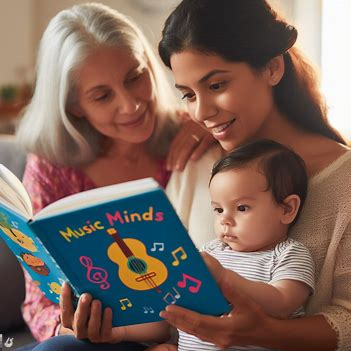Reading to babies is a cherished activity that parents and caregivers can engage in. It is not just a bonding experience, but it also plays a crucial role in the baby’s cognitive development.
Reading introduces babies to a greater number of words and more complex language than they might otherwise hear in day-to day conversation. This exposure to language helps babies’ blossoming language skills really start to bloom. A 2019 study found that babies who are read to every day are exposed to around 78 000 words each year.
Babies aren’t just looking at the pictures in their favourite books. They’re also watching you frown when a book character is frustrated or smile at the happy ending. “Your baby mimics your expressions and the sounds you make,” says paediatrician Sarah Klein, MD. This emotional learning aids in early brain development. Moreover, reading provides a wonderful opportunity for you and your child to connect. It’s a nice way to spend time together and slow down during an otherwise hectic day.
Research has shown that reading as a brain stimulator for infants helps build early literacy skills and encourages brain stimulation. It also aids in the development of their memory, and critical thinking skills. A 2013 study showed that babies who are read to and talked to score higher in cognitive development, like problem-solving.
Research has shown that about a third of kids start school without the language skills they need to learn to read. Reading to babies and small children helps them to develop those valuable skills. In fact, researchers say that verbal interactions (reading, talking, etc.) between parents and young kids may promote higher language and IQ scores all the way up to age 14.
Reading can be a great addition to the daily schedule. If you get in the habit of reading at bedtime, for example, a book can signal to a baby that it’s time to slow down and get ready for sleep.
In conclusion, reading to babies is a simple yet powerful tool that can have profound impacts on their cognitive development and emotional well-being. It’s never too early to start.
